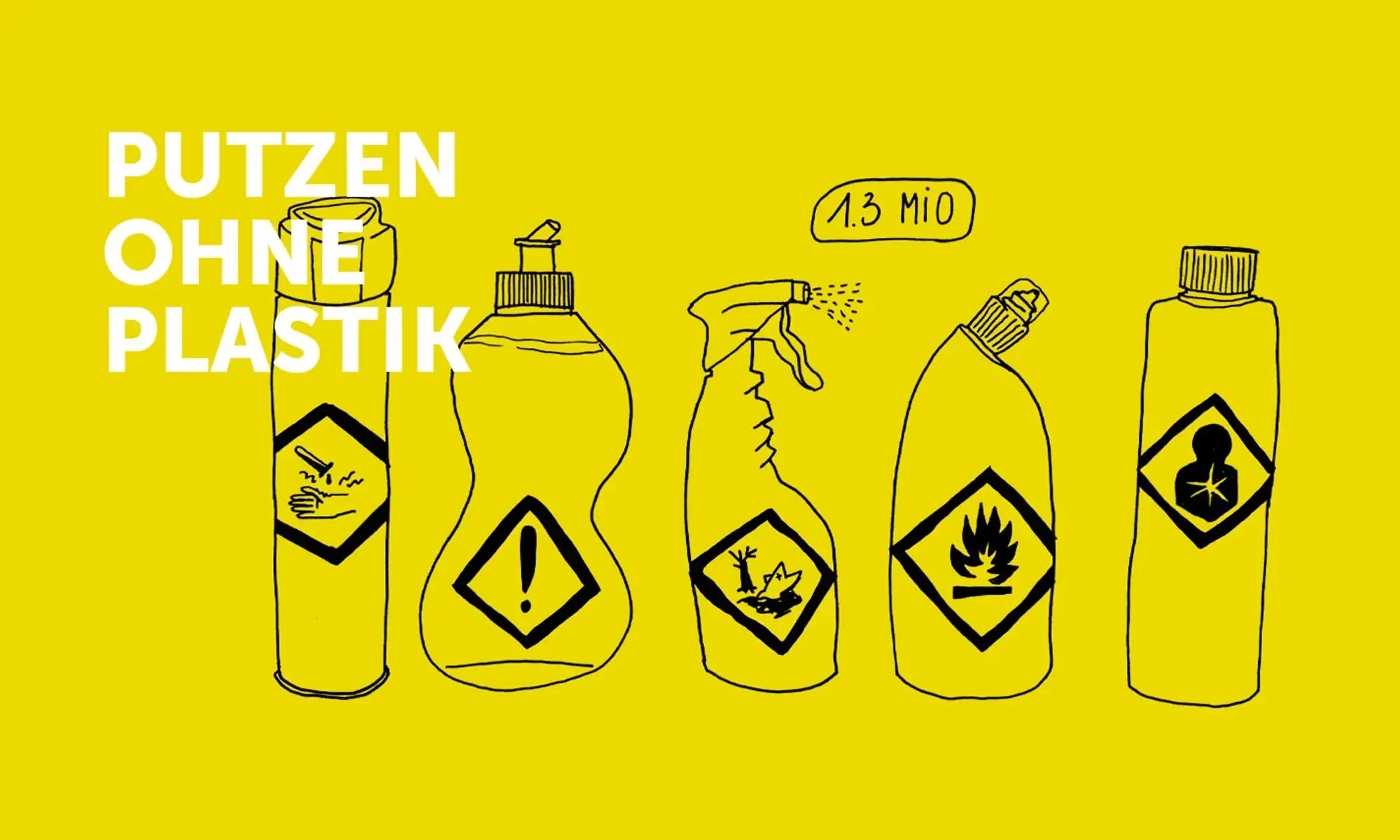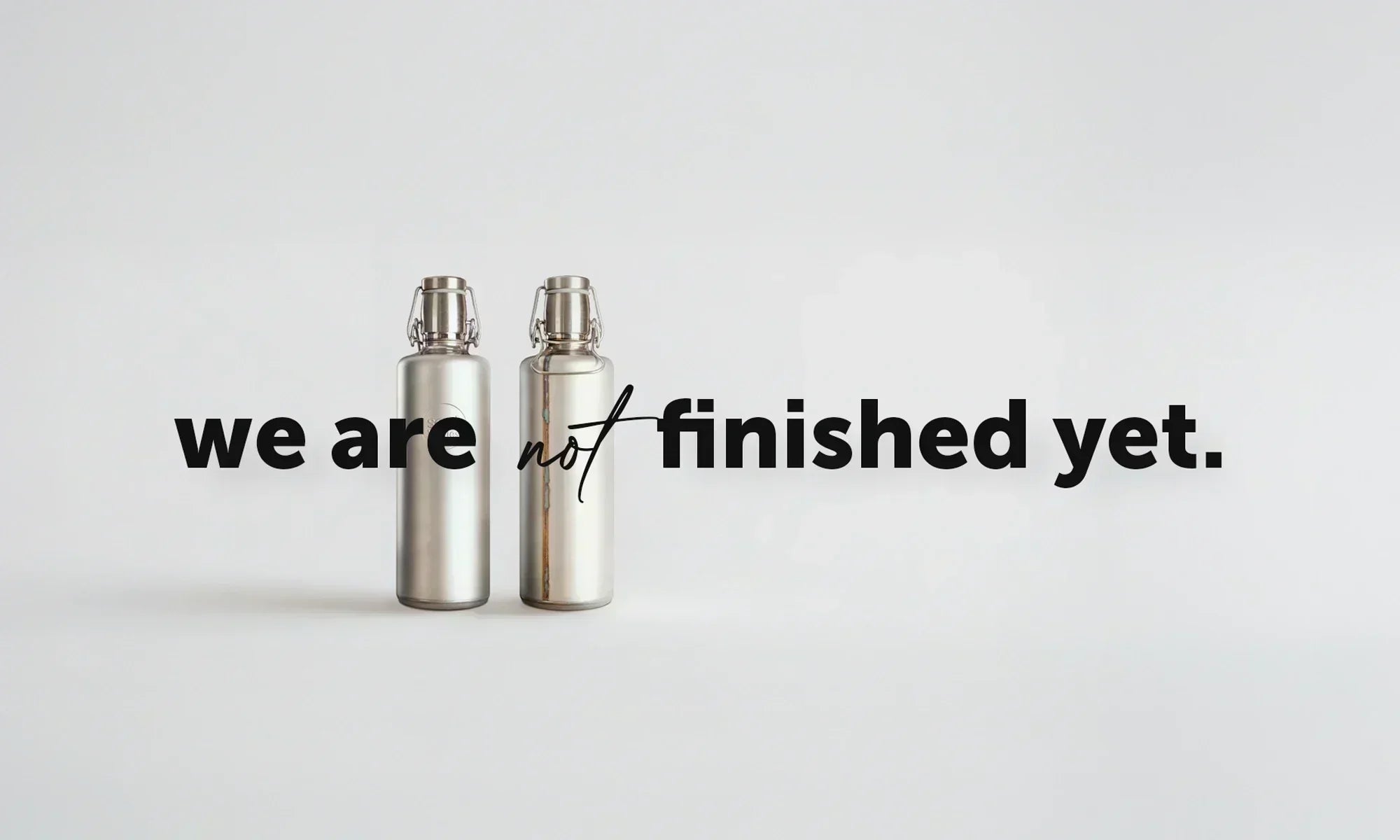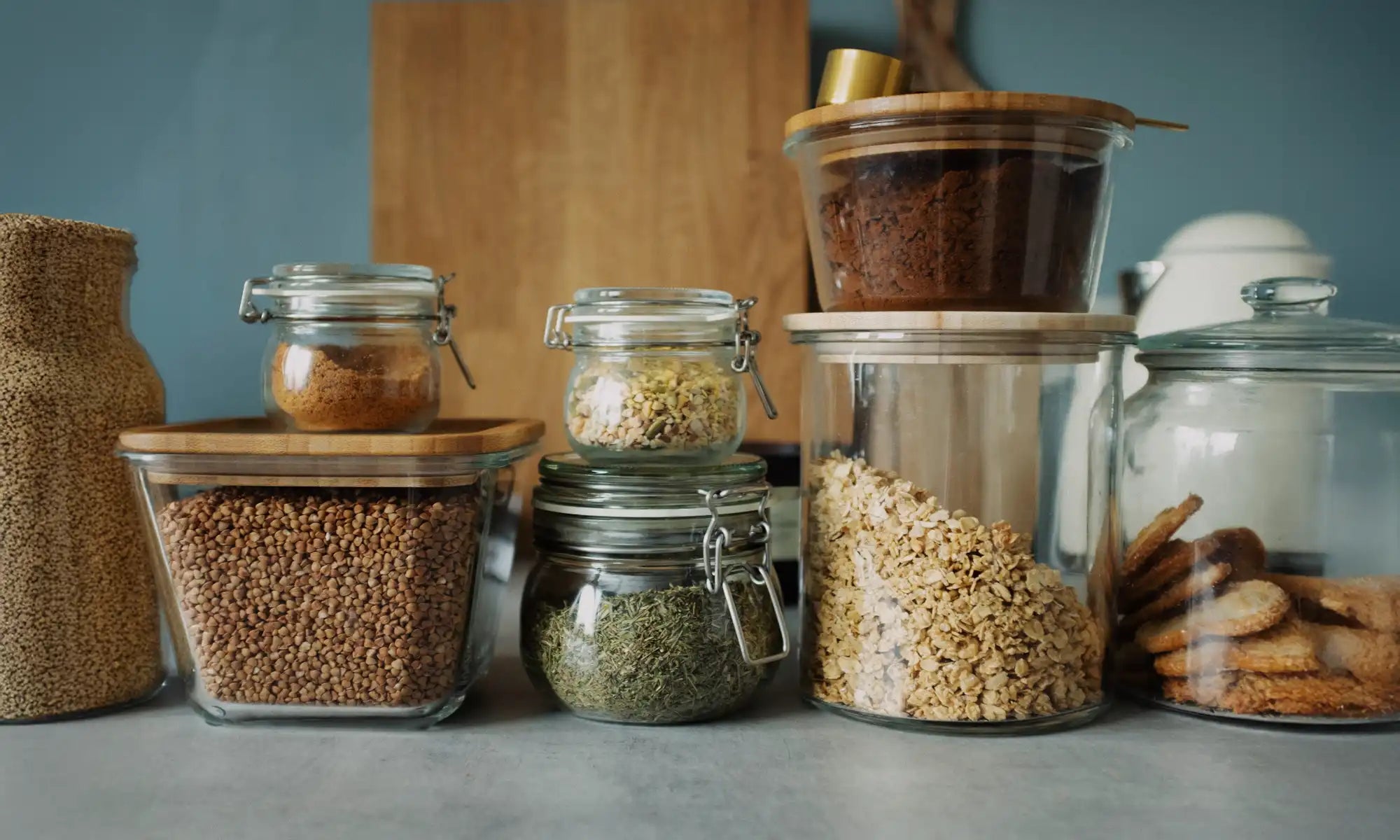
Sustainably clean: 8 tips for cleaning without plastic & chemicals
It sounds logical, but unfortunately, in everyday life, it's the exception rather than the rule: cleaning without plastic and chemicals. Even if we rely on cotton cloths, microplastics are often found directly in cleaning or laundry detergents, as well as harmful chemicals. Packaging is also a problem. Here are some tips for cleaning plastic-free and sustainably.
"Ugh, idiot, let's clean up now!" Aside from the typically Bavarian way, everyone with shared apartment experience (or parents) probably knows this phrase: Finally clean up. But what does "clean" actually mean in today's world, and why do we plastic-obsessed soulies have to open yet another chapter of plastic and environmental history? Quite simply: We at soulbottles simply love avoiding plastic. And we're not entirely in agreement with the traditional cleaning routine and would like to tidy things up a bit, so that cleaning without plastic and chemicals is no exception!
Cleanliness, order and chemical spraying
We Germans are known for our strong need for order and our perfectionism. This also applies to cleanliness: According to the Federal Environment Agency, around 1.5 million tons of detergents and cleaning products are sold to private households in Germany every year. But how good is this obsession with cleaning for us?
Ultimately, excessive cleaning is quite counterproductive, as it pollutes the environment and can even endanger our health. Many cleaning products are full of chemicals, transporting pollutants into the air, wastewater, and ultimately back to us.

Cleaning with lots of chemicals
According to the Federal Environment Agency, the detergents and cleaning products used in private German households annually pollute wastewater with approximately 564,500 tons of chemicals. These include surfactants, but also phosphates, fragrances, enzymes, phosphonates, optical brighteners, and silicones. Wastewater treatment plants cannot completely filter many of these chemicals from the water. Retained polymers also reach agricultural land via sewage sludge.
Health risk due to cleaning mania
Even when it comes to washing clothes, we should think twice. We often trade dirt for chemicals: The German government also warns against harsh cleaners containing strong acids, alkalis, or disinfectants.
We need bacteria for our health. Antibacterial cleaners can harm beneficial bacteria on the skin and in the body, triggering allergies and eczema. Sterile households can even be detrimental to the immune system.
Cleaning without plastic? If it weren't for microplastics
Conventional detergents and cleaning products also lead to a major waste problem, as they, too, are almost exclusively available in disposable plastic packaging.
Microplastics are also used as an ingredient in cleaning products—for example, as fillers, solvents, or film formers. A total of 48,000 tons of microplastics enter wastewater annually.
Did you know that a fleece jacket loses about 1,000,000 microplastics per wash?
Helpless against the plastic flood? No way! Eight tips
Cleaning without plastic and chemicals is possible, step by step!
1. Cleaning with household remedies and DIY
Baking soda, vinegar, citric acid, baking soda, and curd soap: These household remedies are versatile, inexpensive, and plastic-free. Vinegar and citric acid descale, while baking soda has antibacterial properties—also useful for DIY natural cosmetics ( plastic-free bathrooms ). Baking soda is ideal for washing and cleaning, and curd soap is the basis for many DIY cleaners.

2. Homemade vinegar cleaner
It's that easy:
- Place citrus fruit peels in a container
- fill with vinegar
- Let it steep for 2–3 weeks and fill into a spray bottle
The cleaner has a disinfectant effect, dissolves limescale and smells good – completely without chemicals.
3. Cleaning with effective bacteria heroes
Effective microorganisms promote positive biological processes. They help combat odors, clean surfaces, and even improve intestinal flora. Ideal for laundry, floors, and bathrooms.
4. Wash clean for less microplastics
Washing tips:
- less synthetic
- wash cooler
- Fill the machine correctly
- Use Guppyfriend bags
DIY detergent (1 liter for ~0.50 €):
- 4 tbsp washing soda
- 30 g curd soap
- 2 liters of water + essential oil
Watch the preparation at Smarticular

5. Sustainable cleaning: simply recycle
Use old textiles instead of disposable cloths or microfiber cloths – these are often responsible for microplastics.
6. Replace the plastic sponge!
Natural sponges, such as loofah sponges or alternatives made from bamboo, corn, or cotton, are plastic-free and effective.
7. Super clean thanks to brushing & shaking
Use sustainable bottle brushes like the soulbrush made from natural materials. Tip: soulbottles cleaning beads made from stainless steel are reusable.
8. Cleaning and laundry products: Buy sustainably
Use the Codecheck app to check for questionable ingredients. When shopping, look for seals like the Blue Angel or the EU Ecolabel . They help you choose environmentally friendly products.



